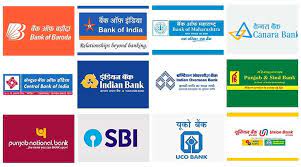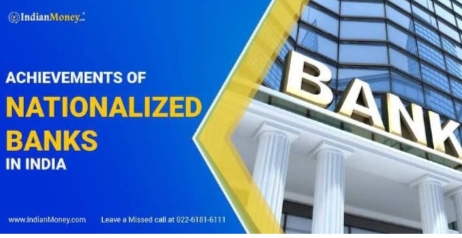| Posted on
As of today, India has 12 nationalized banks spread throughout the country. This list of 12 nationalized banks includes:
- State Bank of India
- Punjab National Bank
- Bank of Baroda
- Canara Bank
- Union Bank of India
- Bank of India
- Indian Bank
- Central Bank of India
- Indian Overseas Bank
- UCO Bank
- Bank of Maharashtra
- Punjab & Sind Bank
Hope this answers your question.
Image Courtesy: Google

0
0 Comment
| Posted on
objective of Nationalized bank
1) to eliminate concentration of economic power in few hands .
2)to diverse the flow of bank credit towards priority sector consisting of agriculture.
3)to extend banking facilities to rural area .
4)promote economics development
List of Nationalized bank
1) Allhabad bank
2) Andhra Bank
3)bank of baroda
4) bank of India
5)bank of Maharashtra
6) canara bank
7) corporation Bank
8)Indian Bank
9) Indian overseas Bank
10)oriental Bank of commerce
11)Punjab National Bank
12)Punjab and sind Bank
13) syndicate bank
14)UCO bank
15)union bank of india
16)United Bank of india
17)Vijaya Bank
18)dena bank
19)central bank of india 
0
0 Comment
Student | Posted on
As of September 2021, there are currently 12 nationalized banks in India. They are:
- Bank of India
- Bank of Maharashtra
- Canara Bank
- Central Bank of India
- Indian Bank
- Indian Overseas Bank
- Punjab & Sind Bank
- Punjab National Bank
- State Bank of India
- UCO Bank
- Union Bank of India
- United Bank of India
Nationalization refers to the process by which a government takes over private assets and brings them under state control. In the case of nationalized banks in India, the government acquired a majority stake in these banks and brought them under its control in order to promote financial inclusion and economic growth.

0
0 Comment
